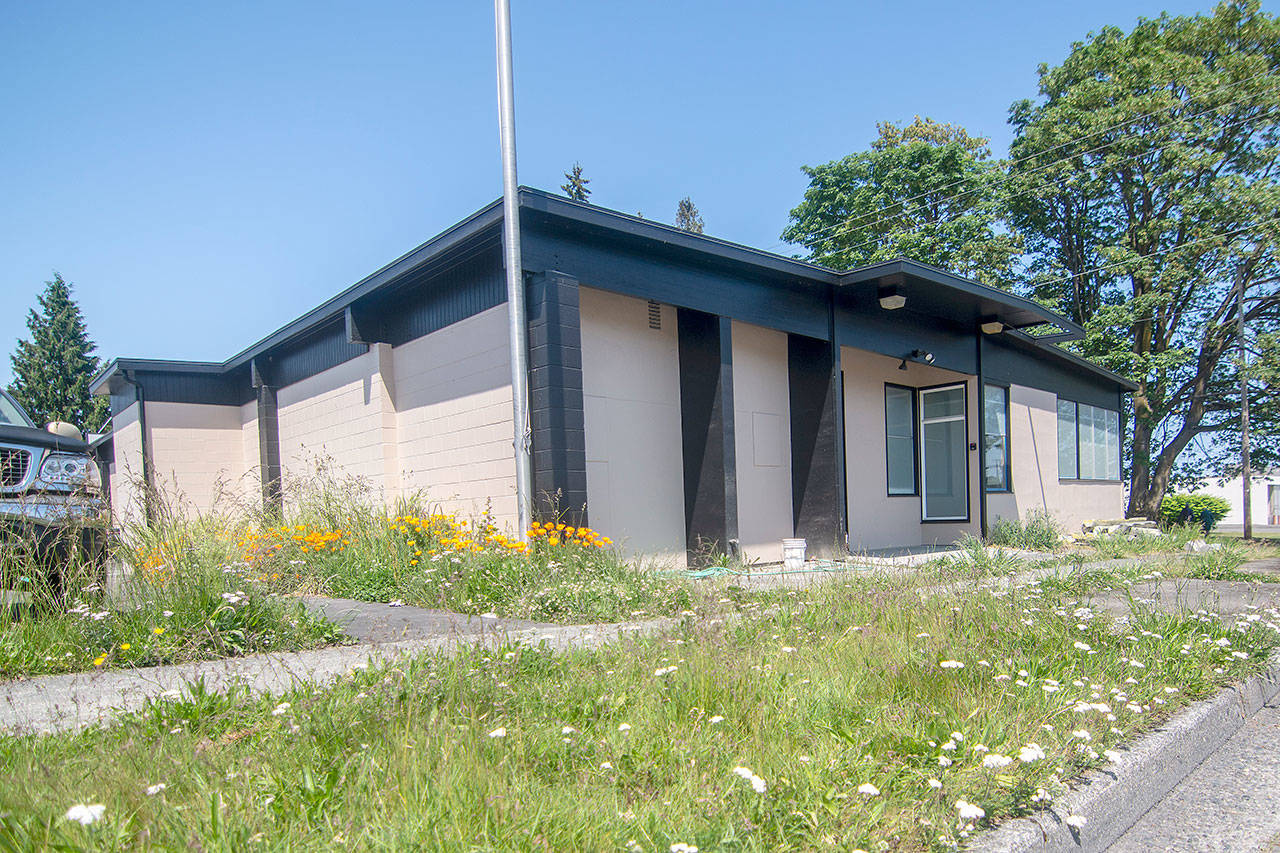PORT ANGELES — A new opioid treatment center is preparing to open in Port Angeles this summer and will primarily use methadone to treat people fighting opioid addiction.
BayMark Health Services, the largest opioid-use disorder medicine-assisted treatment provider in North America, plans to open within the next two months at 716 S. Chase St., the site of the former Buzi Bee Daycare, which closed in 2017.
“We’re really excited to open in the area as soon as possible,” said Tom Schwalie, vice president of development. “We think this will help the community immensely.”
The Texas-based for-profit company will provide medication assisted treatment to people who are addicted to opioids, such as heroin and prescription pain medications.
The company operates 223 medication-assisted treatment locations in 31 states and Ontario, serving more than 50,000 patients, according to its website at baymark.com. The Port Angeles clinic will be its second location in Washington state.
The clinic will provide counseling in individual and group settings, provide case management and dispensing of medications to treat opioid-use disorder.
A doctor will meet with patients to determine which medication — methadone, Suboxone or Vivitrol — is the best for the individual. While Suboxone and Vivitrol are readily available on the North Olympic Peninsula, this will be the only clinic to offer methadone at this point.
Schwalie said the “vast majority” of patients will be on methadone, which will be dispensed to patients daily. He said patients who have been successful with the program for some time can begin to get “take home” doses, starting with one day.
“The patients that we serve have opioid-use disorder, which is protected under the ADA, and are very similar to folks who have diabetes,” he said. “This is a disease. What we are doing is treating the disease.”
Clallam County Health Officer Dr. Allison Unthank said BayMark will be filling a gap in treatment services in the community. She said while there patients who need to have “directly-observed therapy,” which she said is lacking.
That means providers will watch patients take their medication. Patients will go to the clinic daily for their medication.
“Every patient is different in what they need,” Unthank said. “For some patients methadone is the best option for them. We have patients in our clinics that would be better served by directly-observed therapy.”
She said evidence shows medication-assisted treatment helps people get sober and stay sober.
“Having the full spectrum available is the only way to address the opioid epidemic in the community,” she said.
BayMark began looking into establishing a facility in Port Angeles when it signed a contract with the Salish Behavioral Health Organization in 2017. Under the contract, BayMark was to establish clinics in Port Angeles and Bremerton.
Schwalie said it has been difficult to find property for the projects, but said the Bremerton clinic is expected to open later this summer as well and will offer the same services.
The Port Angeles clinic will treat about 200 patients within five years while the Bremerton clinic will treat up to about 350 patients.
When the doors open in Port Angeles, the clinic will employ one doctor, two nurses, a treatment center manager, two counselors and a greeter, he said. As the program grows, they will hire more people.
“We’ll have additional counselors coming in once our patient load grows higher,” he said.
BayMark will be leasing the property in Port Angeles, he said. It is located near other providers, such as Peninsula Behavioral Health.
He said that studies show that the patients the clinics serve are already in the community and that crime around opioid treatment clinics goes down.
He cited a Johns Hopkins Bloomberg School of Public Health study that found there might be less crime near methadone clinics.
“There’s a stigma, and the problem with stigma is that it is based on emotion and not fact,” he said. “Areas tend to do better once we open. Crime goes down and people in the community are getting better. We’re saving lives”
He said that every dollar spent at the clinic can be about a $7 return to the community. He said that number is based on the costs of responding to overdoses and the court and policing costs associated with crime.
________
Reporter Jesse Major can be reached at 360-452-2345, ext. 56250, or at jmajor@peninsuladailynews.com.

